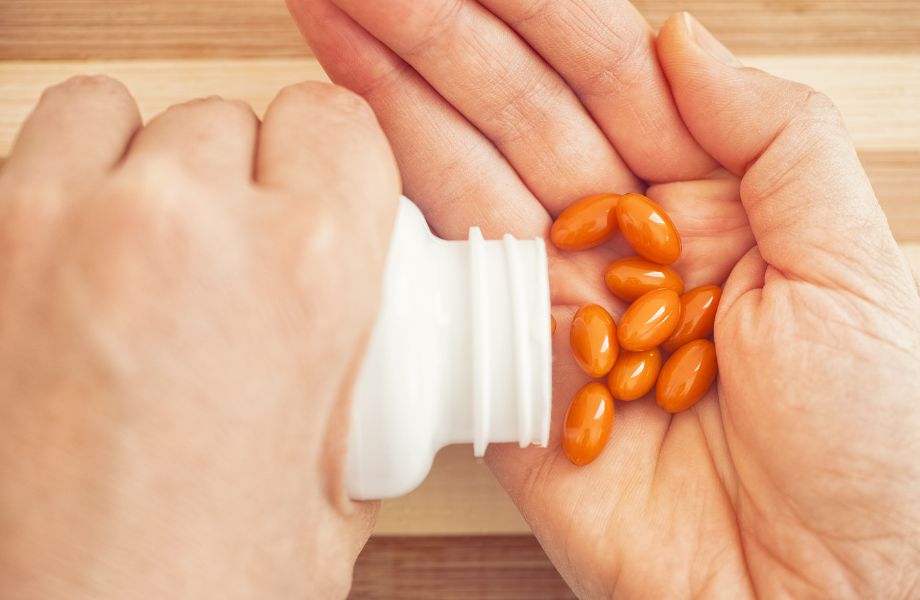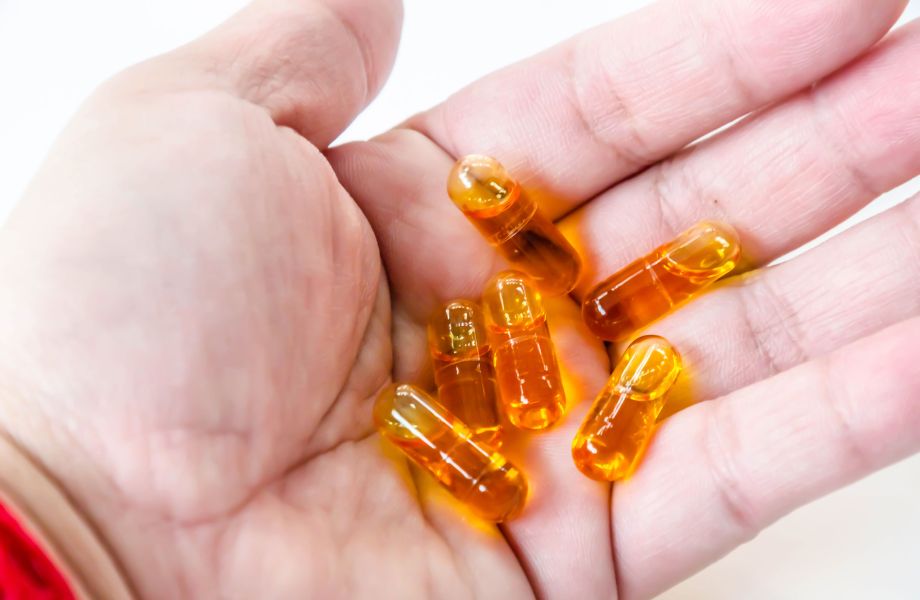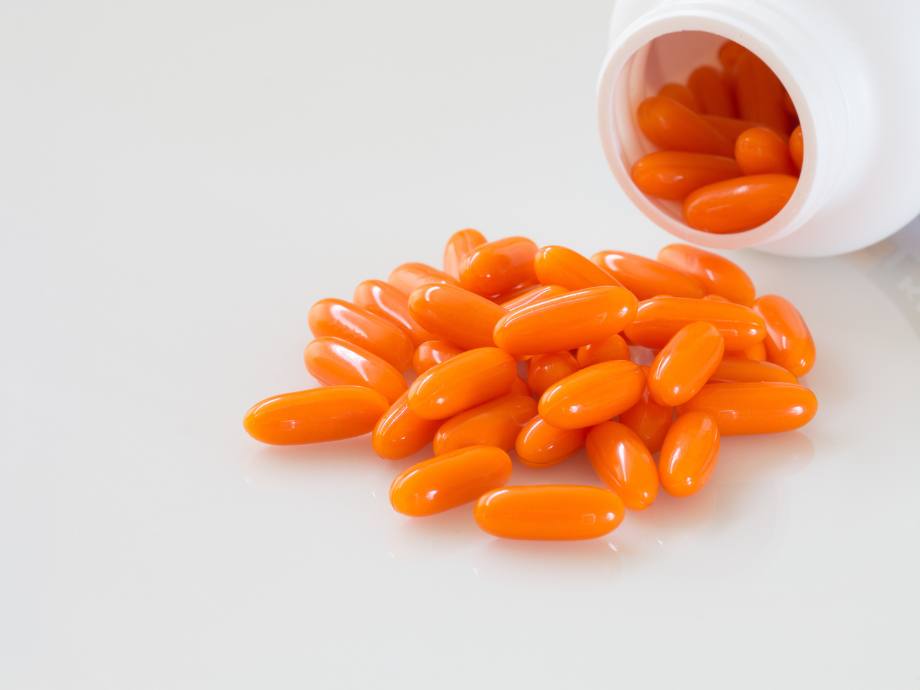We test and review fitness products based on an independent, multi-point methodology. If you use our links to purchase something, we may earn a commission. Read our disclosures.
CoQ10 was one of the first supplements to become popular in the supplement industry. It is likely that this had a great deal to do with Coenzyme Q10 being approved in 1976 in Japan1 as a mainstream drug for the treatment of cardiovascular disease, particularly high blood pressure.
RELATED: Best Biohacking Supplements
It was only a matter of time before the supplement industry in the United States got a whiff of an opportunity. Now, CoQ10 is an antioxidant associated with improving a range of health conditions, from Parkinson’s disease to infertility to hypertension.
So, what exactly is CoQ10? What does it do in your body and what are some of the biggest CoQ10 benefits? Is it safe to take? Below, we’ll go over all of that and more.
Medical disclaimer: This article is intended for educational and informational purposes only. It is not intended as a substitute for medical advice. For health advice, contact a licensed healthcare provider.
What Is CoQ10?
Our bodies naturally produce Coenzyme Q10, an antioxidant most famous for being a vital component of our mitochondrial energy production. Even if you aren’t a health or biology pro, you probably already know that mitochondria are the powerhouse of the cell. Specifically, the mitochondrion works within our cells to produce adenosine triphosphate (ATP). If you’ve ever taken a creatine supplement, you likely already know that ATP is the body’s unit of energy.

Coenzyme Q10 helps to make the production of adenosine triphosphate more efficient, along with reducing levels of oxidative stress within the mitochondria. These processes are essential to human life, which makes it fortunate that our bodies produce CoQ10 naturally.
RELATED: Creatine Benefits
When it comes to CoQ10 supplementation, there are several different forms to choose from. Here are the most common ones:
- Ubiquinone: The most common and oxidized form of CoQ10.
- Ubiquinol: The reduced form that is also the most prevalent in blood levels of CoQ10. The oxidized form of ubiquinone is the opposite of the reduced form of ubiquinol. The body oscillates between both forms during the conversion process, and neither form is better absorbed than the other, according to science2.
- MitoQ: In essence, it is ubiquinone attached to a molecule called triphenylphosphonium (TPP) in order to deliver it more efficiently to the mitochondria.
CoQ10 Benefits
Even though the body can make Coenzyme Q10 on its own, supplementation can help pick up the slack if the body starts falling behind on production (which often happens as we get older).
Can Boost Physical Performance
For athletes looking to improve their physical performance, CoQ10 use has become more popular. Research shows it can effectively reduce exercise-induced oxidative damage, which may help improve recovery and reduce muscle pain. These effects were particularly profound in individuals who performed anaerobic exercise while specifically helping to reduce time to fatigue3.

Assists With Heart Attack Recovery
CoQ10 is found throughout the tissues in the body, but the highest concentration4 of it is found in the heart muscle.
That said, though CoQ10 can be a powerful antioxidant, increasing CoQ10 levels with Coenzyme Q10 supplementation can’t necessarily provide heart health benefits in healthy individuals, despite the claims that it can.
RELATED: Best Heart-Healthy Meal Delivery Services
However, studies5 have shown that CoQ10 can be useful for those who have had a heart attack before. When someone suffers a heart attack, they also suffer from damage to the heart tissue due to temporary oxygen deprivation from the heart failure. This damage weakens the heart and makes one susceptible to subsequent heart attacks. Research suggests that past heart attack sufferers who take 120 milligrams of CoQ10 per day for one year have lower markers for risk factors of future heart disease, report better energy levels, and have fewer instances of heart attacks.
In this way, CoQ10 could be considered a potential protective supplement for those with a history of cardiovascular disease. Furthermore, some studies show that CoQ10 can also help improve exercise performance6 in those who have a weaker heart as a result of a heart attack.
As a final note, there have been suggestions that CoQ10 can help with congestive heart failure (CHF). Congestive heart failure is similar to but different than a heart attack. Heart failure is a chronic condition in which the heart is too weak to pump blood properly, whereas a heart attack is an emergency condition where the heart is deprived of a blood supply.
In any case, there is much less solid evidence that CoQ10 can help improve symptoms of CHF, as most results are mixed.
Helps Improve Function of Statin Medications
Statins are a group of medications often prescribed to those with high cholesterol to lower their risk factors for cardiovascular disease and cardiac events. However, statins have the surprising potential to cause low levels of CoQ10.
RELATED: Best Low-Sodium Meal Delivery Service
One way statins lower cholesterol is by preventing the production of the enzyme HMG-CoA, which is required for Coenzyme Q synthesis. According to a meta-analysis of randomized controlled trials, long-term use of statins can result in various types of heart muscle damage due to the energy production provided by CoQ10 being hampered7.
Clinical trials have shown that those who supplement with CoQ10 while taking a statin showed great improvement in heart symptoms compared to those not taking the dietary supplement by preemptively preventing a CoQ10 deficiency.
May Help With Migraine Headaches
Experts have posited that migraines have a strong correlation to inflammation in the body. Due to CoQ10 being an antioxidant, a small clinical study suggests it can help improve the symptoms of migraines by reducing the number of free radicals that can trigger these headaches8.
RELATED: Health Benefits of Magnesium
Assists in the Management of Diabetes Mellitus
A meta-analysis of randomized controlled trials found substantial evidence to support9 the effectiveness of Coenzyme Q10 in helping to manage lipid levels in those with type 2 diabetes.
Out of the 14 placebo-controlled trials reviewed with almost 700 subjects, it was found that both low and high doses of the nutrient helped those with diabetes mellitus have better blood sugar control, improved fasting blood glucose, and lower levels of lipids.
Given that type 2 diabetes comes out due to pancreas dysfunction, experts posit that CoQ10 exerts these effects by reducing the amount of free radicals in the pancreas for better glucose management.
How Much CoQ10 Should You Take?
Most CoQ10 supplements come in doses from 100 to 200 milligrams for daily use. However, the correct dose varies depending on what benefits you are looking to get from taking CoQ10. Most of the benefits listed above can be obtained from 300 milligrams of daily CoQ10 supplementation10.

Studies have also shown this dosage is safe for nearly everyone who is healthy and not on prescription medications. Regardless of how much you take, it’s important to know that CoQ10 is fat-soluble, meaning the nutrient is best absorbed when consumed alongside a dietary fat or mixed meal that contains fat. Basically, you’ll get the best results if you take CoQ10 with food. Clinical trials have also suggested that taking CoQ10 as a soft-gel capsule also helps improve absorption11.
RELATED: Best Weight Loss Supplements
Potential CoQ10 Side Effects and Interactions
Nearly everyone tolerates CoQ10 well without any side effects. That said, some people who may have a sensitivity to the nutrient have reported stomach issues, insomnia, and even rashes. Due to the potential for insomnia, many professionals recommend refraining from taking the dietary supplement too close to bedtime. Outside of that, the supplement is generally safe for those without any health conditions.
If you’re on prescription medications, though, you want to be careful. CoQ10 interacts negatively with blood thinners like warfarin, drugs that treat blood clots and hypertension, cancer drugs, and some antidepressants. Talk to your healthcare provider before supplementing if you are taking medication or if you are pregnant or breastfeeding.
Can You Get CoQ10 From Food?
We’ve established that our bodies mostly do a great job of making CoQ10 naturally, which is why Coenzyme Q10 deficiency is quite rare. It’s also true that you can get it pretty easily from food. Here are some of the most common food sources of CoQ10:
- Organ meats (liver, sweetbreads, brain, heart)
- Most animal proteins (beef, poultry, pork)
- Oily fish (salmon, sardines, mackerel)
- Beans and nuts (lentils, edamame, peanuts)
- Vegetable oils
- Sesame seeds
RELATED: Best High-Protein Foods

We recognize that most of you may not be super stoked about the idea of eating organ meats like chicken hearts for lunch instead of taking a pill. However, while these are the richest sources of CoQ10, fatty fish is the second richest source of the nutrient. Both food sources have high concentrations of other nutrients as well.
If you really aren’t a fan of supplementing, talk to a nutrition professional like a dietitian about what foods you can consistently include in your nutrition to get enough CoQ10.
CoQ10 Benefits: Final Thoughts
CoQ10 is a powerful antioxidant that is stored in nearly every tissue in the body due to its role in energy production in the mitochondria of the cell. Since its discovery, it’s been used to promote heart health. However, recent research has shown that CoQ10 can also help individuals who have suffered a heart attack5, have high LDL due to type 2 diabetes9, have high blood pressure1, take statins for blood clots and hypertension7. It can even help improve athletic performance3.
CoQ10 is also well tolerated by most individuals, but those on medications or who have chronic conditions should consult with their healthcare provider before supplementing. It’s also recommended to take the supplement in the morning or afternoon with food for best results.
RELATED: Plant Protein vs Animal Protein
All of that said, it’s not necessary for most healthy individuals to take CoQ10. The body does a generally good job of making enough on its own. If you have a healthy diet full of lean protein, legumes, and unsaturated fats, you’re likely getting enough from your nutrition already.
CoQ10 Benefits: FAQs
What happens when you take CoQ10 every day?
Coenzyme Q10 supplementation has been shown to be relatively safe when taken as directed, even at high doses. However, a small number of people have reported GI symptoms and trouble sleeping as side effects.
Is there any downside to taking CoQ10?
Reports of side effects from taking Coenzyme Q10 are rare in healthy individuals. However, some have reported mild stomach upset and insomnia.
Who shouldn’t take CoQ10?
It is possible that Coenzyme Q may reduce the effectiveness of blood thinners like warfarin prescribed to treat blood clots. It may also interfere with some medications to lower blood pressure. Its safety for those who are pregnant or breastfeeding also has not been established.
What are the symptoms of needing CoQ10?
CoQ10 deficiency is extremely uncommon and most people have no need for Coenzyme Q10 supplementation. However, extreme fatigue is a common symptom. Talk to your healthcare provider or registered dietitian if you feel you may need to supplement.
References
- Pelton R. Coenzyme Q10: A Miracle Nutrient Advances in Understanding. Integr Med (Encinitas). 2020;19(2):16-20.
- Pravst I, Rodríguez Aguilera JC, Cortes Rodriguez AB, et al. Comparative Bioavailability of Different Coenzyme Q10 Formulations in Healthy Elderly Individuals. Nutrients. 2020;12(3):784. Published 2020 Mar 16. doi:10.3390/nu12030784
- Fernandes MSS, Fidelis DEDS, Aidar FJ, et al. Coenzyme Q10 Supplementation in Athletes: A Systematic Review. Nutrients. 2023;15(18):3990. Published 2023 Sep 15. doi:10.3390/nu15183990
- Al Saadi T, Assaf Y, Farwati M, et al. Coenzyme Q10 for heart failure. Cochrane Database Syst Rev. 2021;(2)(2):CD008684. Published 2021 Feb 3. doi:10.1002/14651858.CD008684.pub3
- Singh RB, Neki NS, Kartikey K, et al. Effect of coenzyme Q10 on risk of atherosclerosis in patients with recent myocardial infarction. Mol Cell Biochem. 2003;246(1-2):75-82.
- Adarsh K, Kaur H, Mohan V. Coenzyme Q10 (CoQ10) in isolated diastolic heart failure in hypertrophic cardiomyopathy (HCM). Biofactors. 2008;32(1-4):145-149. doi:10.1002/biof.5520320117
- Qu H, Guo M, Chai H, Wang WT, Gao ZY, Shi DZ. Effects of Coenzyme Q10 on Statin-Induced Myopathy: An Updated Meta-Analysis of Randomized Controlled Trials. J Am Heart Assoc. 2018;7(19):e009835. doi:10.1161/JAHA.118.009835
- Dahri M, Tarighat-Esfanjani A, Asghari-Jafarabadi M, Hashemilar M. Oral coenzyme Q10 supplementation in patients with migraine: Effects on clinical features and inflammatory markers. Nutr Neurosci. 2019;22(9):607-615. doi:10.1080/1028415X.2017.1421039
- Huang H, Chi H, Liao D, Zou Y. Effects of coenzyme Q10 on cardiovascular and metabolic biomarkers in overweight and obese patients with type 2 diabetes mellitus: a pooled analysis. Diabetes Metab Syndr Obes. 2018;11:875-886. Published 2018 Nov 29. doi:10.2147/DMSO.S184301
- Deshmukh G, Venkataramaiah SB, Doreswamy CM, et al. Safety Assessment of Ubiquinol Acetate: Subchronic Toxicity and Genotoxicity Studies. J Toxicol. 2019;2019:3680757. Published 2019 Apr 1. doi:10.1155/2019/3680757
- López-Lluch G, Del Pozo-Cruz J, Sánchez-Cuesta A, Cortés-Rodríguez AB, Navas P. Bioavailability of coenzyme Q10 supplements depends on carrier lipids and solubilization. Nutrition. 2019;57:133-140. doi:10.1016/j.nut.2018.05.020
Further reading

Heavy weights and quick adjustments? Yes, please! Learn about these high-quality dumbbells in our Pepin FAST Series Adjustable Dumbbells review. Read more

We picked and tested the seven best smart treadmills for your home gym loaded with Bluetooth technology and interactive programming. Read more

150-160 characters using target kw: The Garage Gym Reviews team has an exclusive CLMBR coupon code to share to help you save money. Read more

Our Six Star Creatine X3 review dives into the label on this popular supplement to find out if it’s worth the price. Read more

